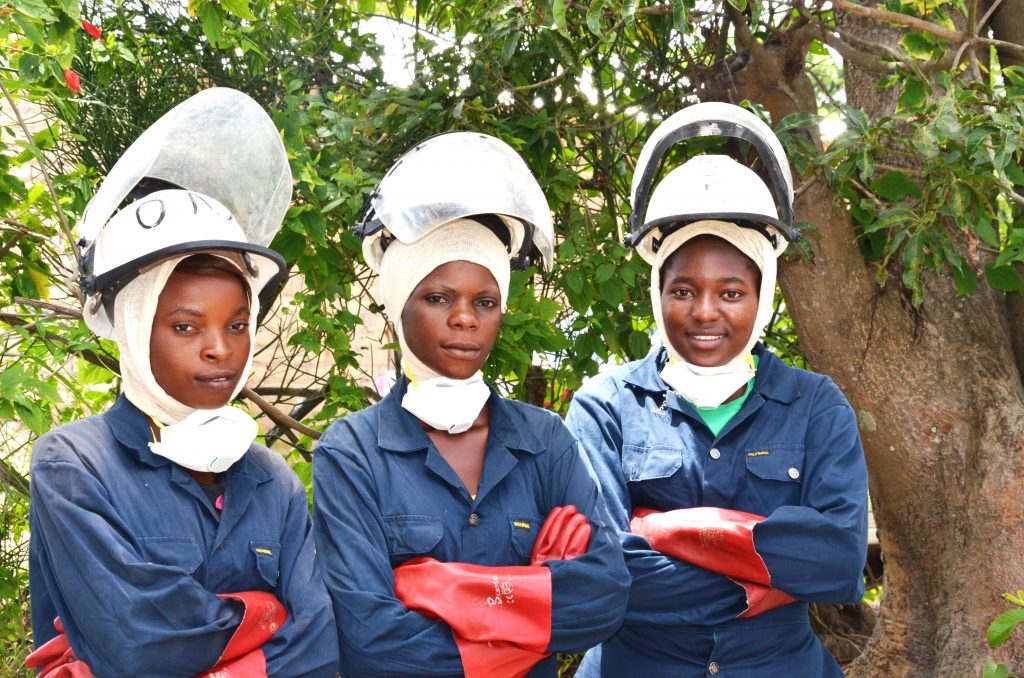
Photo: Abt Associates
Since 2011, the United States President’s Malaria Initiative’s (PMI) Africa Indoor Residual Spray (AIRS) Project has protected millions of men, women, and children in Sub-Saharan Africa against malaria by spraying insecticide indoors on walls, ceilings, and other resting places of vector mosquitoes. The project ensures safe and hospitable working environments for their employees, who are on the frontline of the fight against the deadly infectious disease.
The PMI AIRS Project saw an opportunity to promote gender equality and women’s empowerment among its frontline health workforce by employing more women and providing them with an environment that would ensure their safety and availability to needed resources.
The project aimed to protect the safety of workers, especially women, by posting sexual harassment guidelines at each operational site, and providing gender and sexual harassment trainings to key stakeholders. Furthermore, female privacy has been a priority of this initiative: the project provides changing areas, separate washrooms and showers, to name a few, to ensure female health workers’ safety. Spray campaigns do not begin unless operational sites are verified as meeting these and other environmental compliance standards.
Additionally, to accommodate traditional norms that might prevent women from working all day alone with men to whom they are not related, the project instituted a buddy system for female spray operators. If there are female spray operators, there must be at least two women on the team.
To date, the project has trained more than 21,000 women to support indoor residual spraying (IRS).
The PMI AIRS Project also provided professional growth opportunities to their qualified returning workers. To date, the project has trained more than 21,000 women to support indoor residual spraying (IRS). The project is working with the National Malaria Control Program (NMCP) in each country to recruit and hire more women, ensuring a sustainable approach to gender-integrated IRS after the project ends. The project trained 7% more women to deliver IRS in 2015 compared to 2014.
Focusing on identifying women with potential for supervisory positions, these women receive mentorship and training and many return to work as team leaders or supervisors in the following year. While 25% of supervisors in 2013 were women, 2015 figures show an increase to 46%.
The PMI AIRS Project’s gender-focused initiatives have led to increased hiring of female frontline health workers and a dramatic increase in the number of women in supervisory roles, all while meeting or exceeding the project’s IRS targets.


